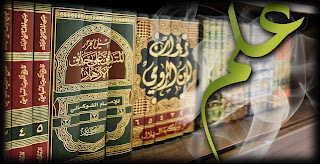Gauri Lankesh
Gauri Lankesh was an Indian journalist and social activist from Bangalore, Karnataka, who is best known for her strong stand against right-wing Hindutva politics. She started her career as a correspondent at various news outlets, and later followed in her father P. Lankesh’s footsteps to publish the Kannada language tabloid ‘Lankesh Patrike’, advocating equal rights for many oppressed groups, despite pressures from different sectors of the society. She vehemently criticized the caste system and the treatment of women within Hindu religion. She maintained that Hinduism, instead of being a religion, was a "system of hierarchy in society" which treated women as “second-class creatures”. She was accused of being a Naxalite sympathizer, even though she rejected it stating that her interviews of Naxal leaders were unbiased. She was named as a member of a committee formed by the Congress-led Karnataka government to convince Naxalites to give up violence and surrender. A brave journalist, who was feared by political and religious groups for her ideologies, was gruesomely murdered in front of her house in September 2017.
Gauri Lankesh was born on January 29, 1962 in Bengaluru, Karnataka, India, to P. Lankesh and his wife Indira Lankesh. Her father was a poet-turned-journalist who established the weekly Kannada language tabloid ‘Lankesh Patrike’, while her mother is a businesswoman who runs a sari shop in Bangalore She was born into a Lingayat family, a distinct Shaivite religious sect from South India which worships the Hindu god Shiva. However, her father identified himself as an atheist, following whom she later became a rationalist She grew up in Konagavalli village in Shivamogga district with her younger sister Kavitha and her younger brother Indrajit. She went to school in Bengaluru, and later completed her BA degree from the Central College in Bengaluru. She initially wanted to be a doctor, but later chose to do her masters in journalism from Indian Institute of Mass Communication in Delhi.
After completing her studies, Gauri Lankesh started her career as a trainee at the then weekly newspaper ‘Sunday Mid-Day’ in Bangalore. She then became a journalist for 'The Times of India', Bangalore, for a short period of time in the 1980s After spending some time in Delhi with her then husband, journalist Chidanand Rajghatta, she returned to Bangalore and started working as a correspondent for the ‘Sunday’ magazine. She continued in that position for nine years and then began working for the television channel of Telugu-language daily newspaper ‘Eenadu’ in Delhi By the time her father died of a heart attack in January 2000, she had worked as a journalist for over sixteen years. While the family was against the idea of continuing the tabloid, Mani, the publisher of 'Lankesh Patrike', convinced her to become the editor of the paper, while her brother became the proprietor and publisher Within a year, the two siblings started having ideological differences over the paper's future, which became public in 2005 when they targeted one another addressing separate news conferences. She claimed that her brother did not accept her social activism, while her brother claimed that her pro-Naxal stand was hurting the paper's ideology In February 2005, her brother withdrew a report about a Naxalite attack on policemen, which was approved by her, stating that the report was in favor of Naxals who had killed seven policemen. Her brother subsequently filed a police complaint against her alleging theft of a computer, printer, and scanner from the publication's office, while she accused him of threatening her with a revolver in a counter complaint Her brother later stated that she was still the editor of the tabloid, and that he would like to discuss their differences. However, she started her own separate tabloid, Gauri Lankesh Patrike, which was run by 50 people and did not contain ads, and served as its editor till her death.




Comments
Post a Comment